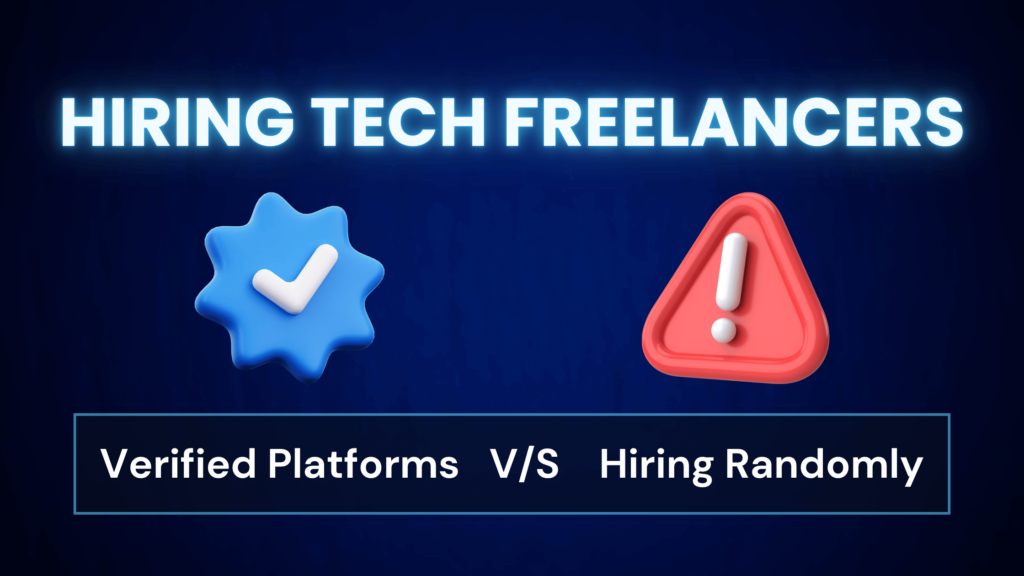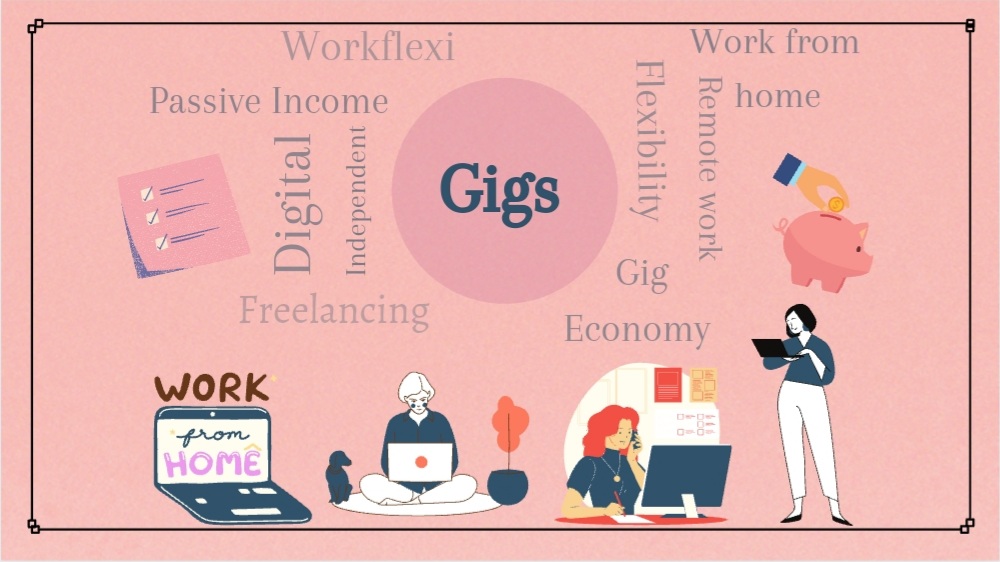The Benefits of Hiring Tech Freelancers Through a Verified Platform Versus Hiring Randomly

In today’s digital era, businesses increasingly rely on tech freelancers to meet their dynamic needs. Whether it’s for a short-term project or ongoing support, the flexibility and specialized skills that freelancers offer can be invaluable. However, the approach you take to hire these professionals can significantly impact the quality and efficiency of your projects. This blog explores the advantages of hiring tech freelancers through a verified platform versus hiring randomly, providing insights into why a structured approach is often more beneficial.
The Risks of Hiring Randomly
Hiring tech freelancers randomly, often through general job boards, social media, or word-of-mouth, can be a risky endeavor. Here are some of the main challenges associated with this approach:
1. Unverified Credentials
When hiring freelancers without a verified platform, you rely heavily on the information they provide. This can lead to scenarios where freelancers exaggerate their skills or experience, leaving you with underqualified individuals who can’t meet your project requirements.
2. Inconsistent Quality
Without a standardized vetting process, the quality of work can vary widely. You might encounter freelancers who deliver exceptional results and others who fall short. This inconsistency can disrupt project timelines and lead to additional costs for revisions and corrections.
3. Limited Accountability
Freelancers hired randomly are often less accountable. If a problem arises, such as missed deadlines or subpar work quality, you may have limited recourse. This lack of accountability can be particularly problematic for critical projects where reliability is essential.
4. Communication Barriers
Effective communication is crucial in any collaborative effort. Random hiring increases the likelihood of encountering freelancers with poor communication skills or language barriers, which can hinder project progress and lead to misunderstandings.
The Advantages of Hiring Through Verified Platforms
Verified platforms, such as Upwork, Toptal, and Fiverr, offer a structured and reliable way to hire tech freelancers. These platforms provide numerous benefits that mitigate the risks associated with random hiring.
1. Thorough Vetting Process
One of the primary advantages of verified platforms is their rigorous vetting processes. These platforms typically conduct background checks, skill assessments, and portfolio reviews to ensure that only qualified and experienced freelancers are listed. This reduces the risk of hiring underqualified individuals.
2. Consistent Quality
Verified platforms maintain high standards for the freelancers they accept. Many platforms also provide client reviews and ratings, which can give you a clear picture of a freelancer’s past performance. This transparency helps ensure consistent quality in the work you receive.
3. Accountability and Dispute Resolution
Most verified platforms have mechanisms in place to hold freelancers accountable. If a freelancer fails to meet the agreed-upon standards, you can often escalate the issue to the platform’s support team. Many platforms also offer dispute resolution services to help mediate conflicts and find satisfactory solutions.
4. Streamlined Communication
Verified platforms often include built-in communication tools that facilitate seamless collaboration. Features like chat systems, project management dashboards, and file-sharing capabilities ensure that both parties can communicate effectively, minimizing misunderstandings and keeping projects on track.
5. Secure Payments
Handling payments through verified platforms adds an extra layer of security. These platforms usually offer escrow services, where funds are held until project milestones are met and approved. This ensures that freelancers are paid for their work while giving clients confidence that they will receive the agreed-upon deliverables.
Case Studies: Success Through Verified Platforms
Case Study 1: Building a Custom E-commerce Website
A small retail business needed a custom e-commerce website to expand its online presence. The business owner initially tried hiring a freelancer through a social media group but encountered numerous issues, including delayed timelines and subpar coding.
Switching to a verified platform, the business owner hired a freelancer with a proven track record. The platform’s vetting process ensured that the freelancer had the necessary skills and experience. The project was completed on time, with high-quality code and robust features that significantly enhanced the business’s online sales.
Case Study 2: Developing a Mobile App
A tech startup needed a mobile app developed quickly to launch its new service. The startup initially hired a freelancer found through a friend’s recommendation. However, the freelancer’s work was inconsistent, leading to multiple revisions and delays.
Turning to a verified platform, the startup hired a team of freelancers with verified skills in mobile app development. The platform’s communication tools facilitated effective collaboration, and the project was delivered ahead of schedule, allowing the startup to launch its service on time.
Conclusion
While hiring tech freelancers randomly might seem like a quick and cost-effective solution, it often comes with significant risks that can outweigh any initial savings. Unverified credentials, inconsistent quality, limited accountability, and communication barriers can all jeopardize your projects.
On the other hand, verified platforms provide a structured and reliable approach to hiring tech freelancers. Through thorough vetting processes, consistent quality standards, accountability mechanisms, streamlined communication tools, and secure payment systems, these platforms offer a safer and more efficient way to meet your freelance hiring needs.
In an era where digital solutions are critical to business success, investing in a verified platform for hiring tech freelancers can make a substantial difference. By choosing this route, you enhance your chances of finding skilled, reliable professionals who can deliver high-quality results, helping your business thrive in a competitive market.


